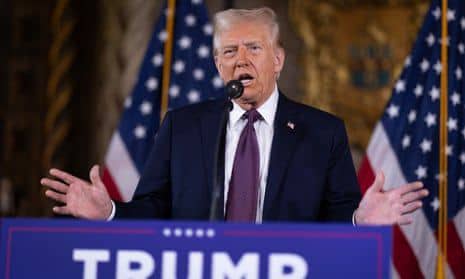In his first interview since returning to the White House, U.S. President Donald Trump downplayed national security concerns over TikTok, stating that the app will “stay around.” Speaking to Fox News, Trump dismissed fears that the Chinese government could use the app for spying, arguing that any product made in China could pose a similar risk. “You can say that about everything made in China,” he remarked, implying that banning TikTok alone would not address broader concerns about cybersecurity and data privacy.
Trump’s stance represents a shift from previous efforts under his administration to ban the app due to national security concerns. While his political opponents have continued to push for stricter measures on Chinese technology companies, Trump’s latest remarks suggest a more lenient approach. This has sparked debate among lawmakers, with some calling for renewed scrutiny of TikTok’s parent company, ByteDance, and its potential ties to the Chinese Communist Party.
Trump Deploys 1,500 Troops to Southern Border
As part of a crackdown on illegal immigration, President Trump has ordered the deployment of 1,500 ground troops to the southern border. The troops, supported by aircraft units, will primarily work on installing physical barriers but will not be engaged in law enforcement activities, according to a senior military official. This move aligns with Trump’s longstanding immigration policy, which prioritizes border security and stricter enforcement measures.
The deployment comes amid rising tensions over border crossings, with Trump reiterating his commitment to curbing illegal immigration. The order has drawn criticism from immigration advocacy groups, who argue that military involvement in border security is an overreach. Meanwhile, Trump has also secured a legislative victory with the passage of amendments that expand the scope of offenses leading to detention for undocumented immigrants, further solidifying his administration’s stance on immigration enforcement.
Secretary of State Rubio Pledges Support for Asian Allies
Newly appointed U.S. Secretary of State Marco Rubio has reaffirmed Washington’s commitment to its Asian allies, particularly in countering China’s influence in the South China Sea. In a call with Philippines Foreign Minister Enrique Manalo, Rubio condemned Beijing’s aggressive actions in the disputed waters, stating that they “undermine regional peace and stability and are inconsistent with international law.” He reiterated that any armed attack on Philippine vessels or military forces would invoke mutual defense commitments under the U.S.-Philippines security pact.
Rubio also held discussions with South Korea’s Foreign Minister Cho Tae-yul regarding North Korea’s nuclear threats and regional security cooperation. Additionally, he spoke with Indonesia’s Foreign Minister Sugiono, emphasizing the importance of trade partnerships and maritime security in maintaining Indo-Pacific stability. His diplomatic engagements signal the Biden administration’s continued focus on strengthening alliances in the region as tensions with China persist.
Trump’s Comments on Ukraine Stir Controversy
President Trump’s recent remarks on the Ukraine-Russia conflict have drawn backlash, particularly from Ukrainian social media users. In an interview, Trump called on Russian President Vladimir Putin to negotiate an end to the war, a statement that was widely criticized as naïve and detached from the realities of the ongoing conflict. Many Ukrainians took to social media to mock Trump’s perceived lack of historical awareness and strategic understanding, questioning whether Putin is genuinely open to peace talks.
Meanwhile, in Moscow, some analysts speculate that the Kremlin may be preparing Russians for a less ambitious outcome than initially envisioned. Pro-Putin media figures, such as Margarita Simonyan, have begun discussing “realistic” conditions for ending the war, which could involve solidifying Russian control over occupied regions while halting further military advances. However, hardline Russian nationalists continue to push for a full-scale victory, complicating any potential peace negotiations.
Trump’s comments have reignited debates over U.S. foreign policy and its approach to the Russia-Ukraine war, with critics arguing that his stance undermines Western efforts to hold Putin accountable. As the 2024 election approaches, Donald’s foreign policy positions are likely to remain a key issue in the campaign.














